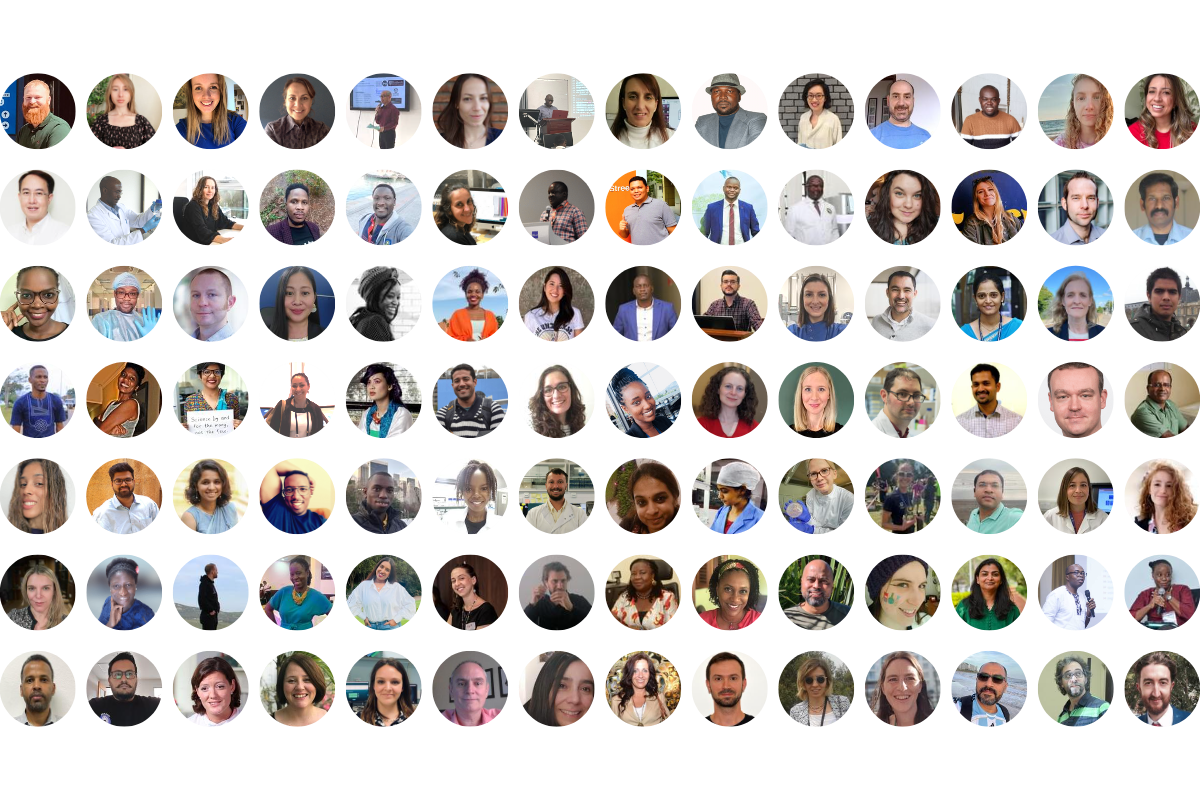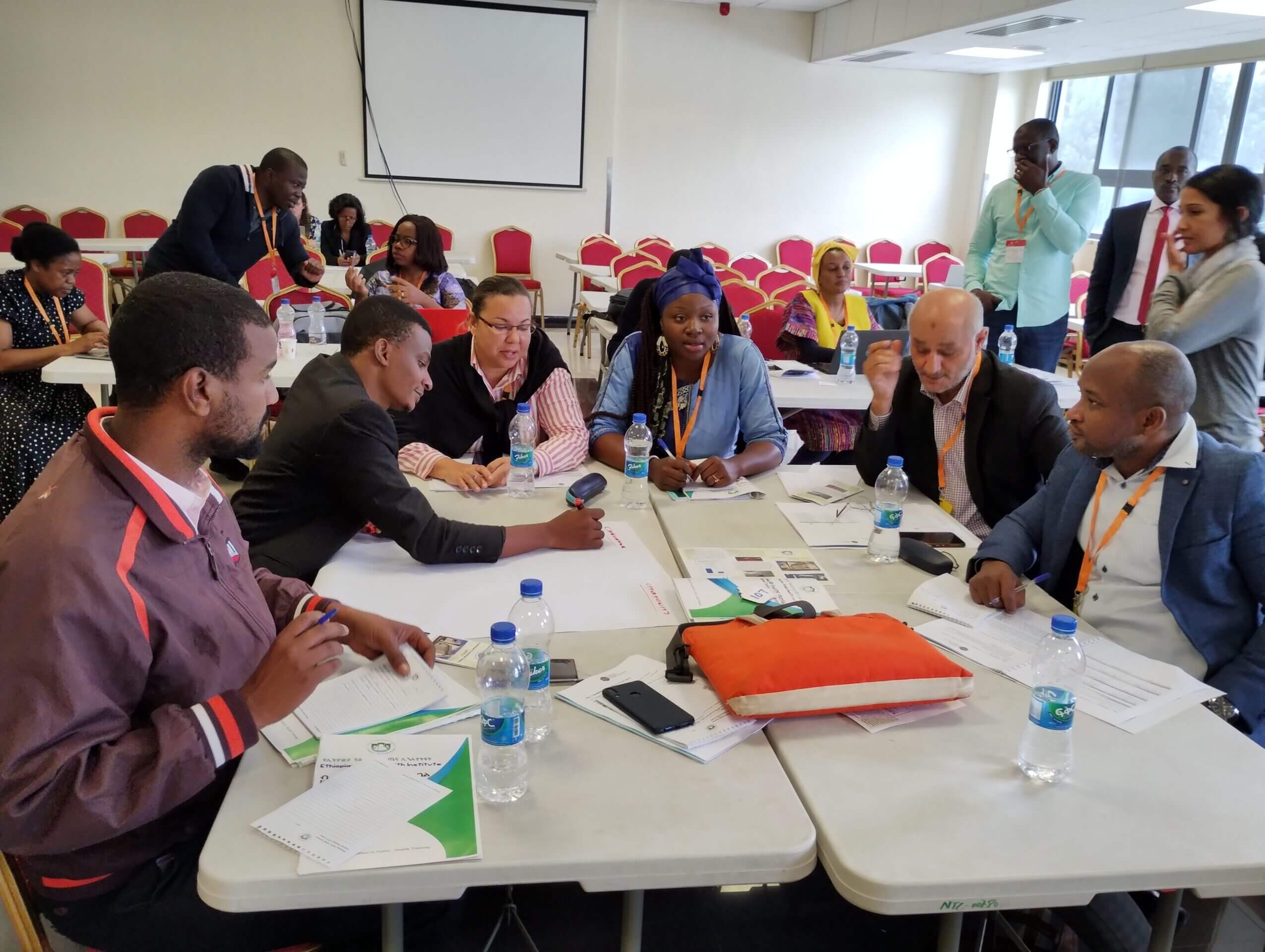
The pandemic shone a spotlight on the value of genomics in infectious disease surveillance to inform public-health decisions.
For Wellcome Connecting Science it was the springboard for the COG-Train project, a pioneering initiative for building global capacity in genomics, in partnership with the COVID-19 Genomics UK Consortium (COG-UK). Working with researchers in pathogen genomics and public health from across the world, this project enabled the sharing of knowledge and skills developed in genomics during the SARS-CoV-2 pandemic.
“Our initial aim was to facilitate an increase in global genome sequencing and analysis capacity, reduce sequencing inequality, and enhance pathogen surveillance. We wanted to engage a global scientific audience, to develop capacity and improve preparedness for future infectious disease outbreaks.”
– Dr Treasa Creavin, Head of Scientific Meetings and Digital Learning
A transformative journey in online learning
Over 15,000 learners from across the globe joined our series of massive open online courses (MOOCs) to better understand how to address the most challenging global infectious diseases. The topics covered in the five courses spanned an introduction to viral genomics, to the challenges in genomics surveillance and global health, including important concepts such as metadata and biobanking.
Although originally focused on SARS-CoV-2, each course built on principles and processes applicable to others global health threats. The final course, emphasised recent public health emergencies – Legionellosis in Argentina, and cholera in Yemen – explaining how genomics helps inform public health decisions by containing infectious diseases, preventing future global health threats, and better protecting human populations.

Increasing the impact of bioinformatics training
To increase the impact of the MOOCs, we developed a series of virtual bioinformatics courses aimed at different audiences.
We used a blended, distributed classroom model to deliver training in 28 classrooms. Working with a team of 12 viral genomics experts, we developed ‘SARS-CoV-2 Bioinformatics for Beginners’, which introduced the core concepts and skills in bioinformatics, the identification of viral variants, and how to share data with the world. We delivered the course using multiple platforms, including Zoom for interactive sessions, a Learning Management System, GitHub repository, and YouTube. The support of 95 staff members across 28 classrooms enabled 350 researchers based in 22 countries across Asia, Latin America, and Africa to benefit from the training.
“It was exciting to pilot an adaptation to our existing distributed model, to see how this remote classroom training approach would work across all the time zones within the different classrooms at the same time.”
– Dr Jorge Batista da Rocha, Education Developer, Lead for COG-Train Virtual and Distributed Classroom Courses
In addition, more advanced hands-on training targeted scientists, who were already working in viral genomics, with 59 researchers from 20 countries based in Asia, Latin America and the Caribbean, participating in virtual courses.
Breaking barriers: global collaboration and sharing resources
We started with a team of 19 collaborators (based in nine countries) for the first MOOC, and grew to 44 collaborators, based in 21 countries, by the final one. This created a democratic model for delivering education and training; considering all the knowledge and expertise of scientists based in institutions worldwide, and not only led by those based in the Global North.
Working with this diverse, global community also fostered a 1:1 gender balance across the project – out of 121 collaborators, 53% were women. Indeed, our course on web-based bioinformatics, which is historically a male-dominated topic, was led by one man and four women!
To enhance learning, increase accessibility and help develop Communities of Practice, which support collaboration beyond the initial training offer, course materials are now available on our GitHub page.
“When developing and delivering these course materials, we were committed to the FAIR principles: Findability, Accessibility, Interoperability, and Reuse of digital assets. The material is licenced under an attribution CC-BY-4.0, which means you can share and adapt the material for any purpose upon acknowledgement”.
– Dr Liã Bárbara Arruda, Education Developer, Lead for COG-Train MOOCs
Establishing capacity in pathogen genomics – beyond skills training
As we adjusted to a post-pandemic world, we saw an opportunity to build on the success achieved through COG-Train, and worked with healthcare, research and training experts to establish an effective and sustainable approach towards capacity building for pathogen genomics. Partnering with the Ethiopian Public Health Institute (EHPI) in Addis Ababa, and collaborating with 17 public health scientists and genomics training experts from across Africa, we delivered a workshop on bioinformatics tools and analysis. Moving beyond developing skills in viral sequencing and bioinformatics, the goal was to empower scientists to build capacity for pathogen genomics in research and service delivery in public health.

Attended by over 30 public health and research professionals who are implementing genomics for pathogen surveillance, we focused on how to establish infrastructure and genomics workforce capacity; how to design sequencing and data workflows; and interpretation and public health decision-making. Provided with educational tools and resources, attendees explored local and regional needs for genomics workforce development, as well as how to cascade skills and knowledge to their colleagues and wider communities through training.
“Genomics capacity building needs to move beyond training with a focus on broader issues, such as leadership strengthening and training approaches which include infrastructure and workflow development, access to funding and workforce development for it to be sustainable.”
– Dr Alice Matimba Head of Training and Capacity Building.
Understanding regional priorities for pathogen genomics in Africa, and developing strategies for deploying genomics in an African context, is just one way in which COG-Train has developed and utilised a sustainable model for capacity building. More broadly the COG-Train initiative has supported its participants in navigating the global policy landscape and emphasised opportunities for collaboration, an ethos that has contributed to all our global training and capacity development activities.
View current and upcoming COG-Train courses here.
- This article was published in the Connecting Science annual review 2023.